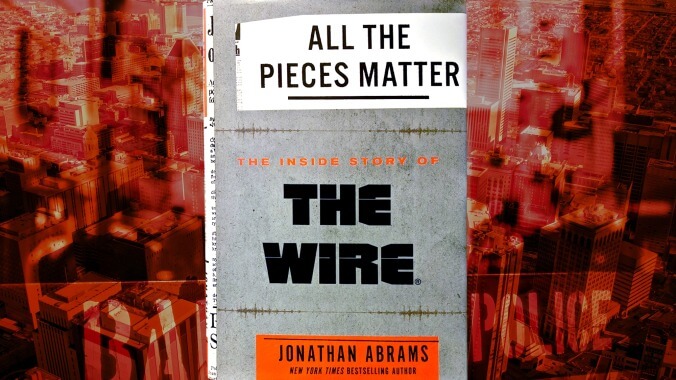All The Pieces Matter delivers a fascinating oral history of The Wire

There’s a section of Jonathan Abrams’ All The Pieces Matter: The Inside Story Of The Wire about the blink-and-you’ll-miss-it scene in which the Wire character deputy commissioner of operations William Rawls (John Doman) appears at a gay bar. Doman kept wondering whether that reveal would lead to a major plot arc for the character but it never did. “In his brilliance, he never touched it again… He just dropped that little seed in there,” Doman said of the show’s creator David Simon.
All The Pieces Matter is filled with nuggets like this, tantalizing anecdotes about the dynamics of the show’s cast and crew that feel like they could be the subject of full chapters or even another book. Just one chapter contains stories about Wendell Pierce and Dominic West taking a young Michael B. Jordan to a strip club for “character research” and the actors judging a “pretty pussy competition,” before transitioning to a fascinating glimpse at their living arrangements. Seth Gilliam and Domenick Lombardozzi decided to rent an apartment together in hopes the closeness would give them the camaraderie needed to realistically portray partners Carver and Herc on screen and wound up playing marathon sessions of Madden with whoever dropped by. Meanwhile Clarke Peters, who seemed to embody his character, Lester Freamon, bought a five-bedroom house and rented it to actors who shared his distaste for television and enjoyed sitting around reading, painting, and playing music. All of these stories beg for follow-up questions, but Abrams quickly moves on.








































